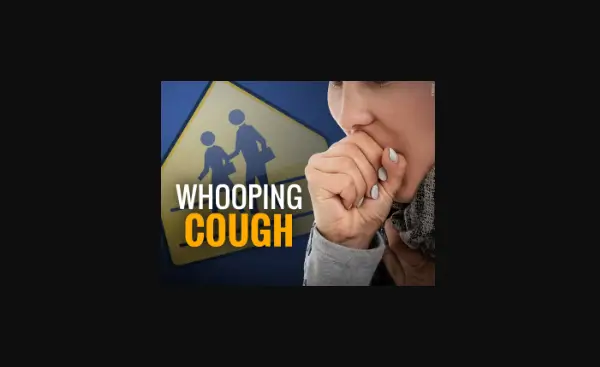NIH Issues Alert to Combat Rising Cough Cases across Pakistan.
Urgent Alert: Kali Khansi on the Rise in Pakistan! NIH Takes Action
The National Institute of Health (NIH) is sounding the alarm on whooping cough, better known in Pakistan as “kali khansi.”
Cases are on the rise, prompting the NIH to issue a strong warning and call for immediate action.
Read More: Cough Syrup from Peshawar Raises Health Alarm
Here’s what you need to know:
- The threat is real: Whooping cough is highly contagious and can be especially dangerous for young children and adults with weakened immune systems.
- NIH takes action: The NIH has sent an alert letter to health departments and stakeholders nationwide, outlining measures to combat the anticipated surge in cases.
- Prevention is key: The alert emphasizes timely vaccination as the most effective way to protect yourself and your loved ones.
- Hospitals under pressure: With rising cases, hospitals could face strain. Getting vaccinated now can help ease the burden on healthcare systems.
Key Points from the NIH Advisory
Here’s what you need to know to protect yourself and your loved ones from whooping cough, also known as kali khansi, as advised by the National Institute of Health (NIH):
1. Highly Contagious: This respiratory infection spreads easily through coughing and sneezing. Be cautious around anyone with a persistent cough.
2. Watch for Symptoms: Incubation can take up to 21 days, but 7-10 days is typical. Look out for a runny nose, mild fever, and a cough that gradually gets worse, with a characteristic “whooping” sound in later stages.
3. Protect the Vulnerable: Newborns and young children are most at risk of serious complications, so ensure they’re up-to-date on vaccinations.
4. Get Vaccinated: The whooping cough vaccine is part of the national immunization program and is crucial for high-risk individuals. Consult your doctor if unsure about your or your child’s vaccination status.
5. Practice Prevention: Maintain distance from suspected or confirmed cases, wash your hands regularly, and cover coughs and sneezes with your elbow or a tissue.
Remember: Early diagnosis and treatment are key. If you experience persistent coughing or the “whooping” sound, seek immediate medical attention.
Read More: Pirola Covid Variant is Spreading Fast
Early Diagnosis and Prevention Key!
The National Institute of Health (NIH) urges vigilance as whooping cough cases rise in Pakistan. Here’s how you can stay safe:
Fast and Accurate Diagnosis: Get a PCR test if you suspect kali khansi. Early diagnosis allows for swift treatment with antibiotics, reducing severity and preventing complications like pneumonia, ear infections, and even psychological problems.
Vaccination is Your Shield: Don’t underestimate the power of the whooping cough vaccine. It’s your best defense against severe illness, especially for newborns and children. Remember, it’s part of the national immunization program, so stay up-to-date!
Be a Responsible Citizen: Protect yourself and others! Maintain distance from those with persistent coughs, practice good hygiene (wash your hands!), and cover coughs and sneezes. By working together, we can curb the spread of kali khansi.
Remember:
- Early diagnosis and treatment are key. Don’t delay seeking medical attention if you experience suspicious symptoms.
- Vaccination is crucial, especially for children and high-risk individuals. Check your immunization status and get vaccinated if needed.
- By being vigilant and practicing preventive measures, we can protect ourselves and our communities from the threat of kali khansi.
Let’s join hands and stop kali khansi in its tracks! Share this information, get vaccinated, and stay safe.
Note: The information above might not be accepted 100%. Please verify from your own sources. We will not be responsible for any kind of loss due to our content.
For more news, please visit Munafa Marketing.




